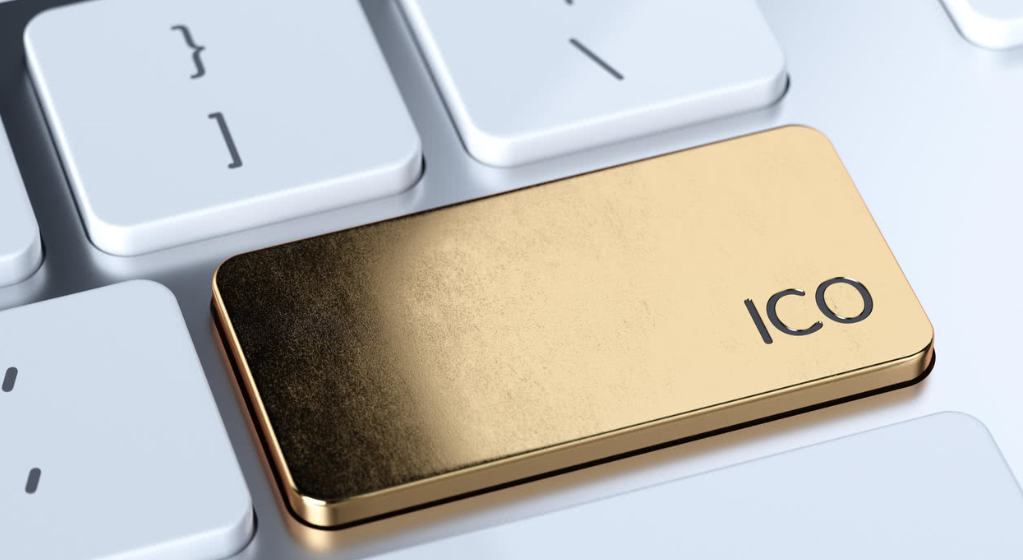What is a token sale (ICO or Initial Coin Offering)?
An ICO or Initial Coin Offering, also known as a token sale, is essentially means of raising funds by start-ups for various cryptocurrency projects. It is unregulated, therefore allows companies to bypass the strictly regulated capital-raising processes. Generally, during the initial coin offering sale, early project supporters buy ICO tokens with cryptocurrencies likes Bitcoin or Ethereum. This method allows start-ups to rise large sums of money to support their projects in a very quick manner.

In order to start an ICO sale and interest potential investors, start-ups usually prepare white papers which detail what the project is about, why people should support it and how much money is necessary to carry out the project. Potential investors judge the idea, the white paper, the team and how capable they are of developing their offered product, and decide whether they will participate in the company’s ICO. The majority of ICO projects are based on blockchain, and the companies behind them are early-stage start-ups that need funding in order to develop their products further.
ICOs are usually held before the product enters development phase as this is often the moment where start-ups need funds. Anyone can participate in them, all they need to do is purchase ICO tokens. An ICO is considered to be successful when it reaches its set hard cap. How long the token sale lasts depends on the start-up organizing it, but it generally takes 4-6 weeks. Some may last longer if they do not manage to reach the hard cap. They can also be cut short if the hard cap is reached sooner.
It is very important for ICO organizers to be very transparent and clear with how much money they have raised and what it will be used for. With so many scams and no regulating parties, ICO can very quickly be called fraudulent for simply not being transparent enough.
When an ICO is successfully completed and the product is launched, the tokens are listed on various exchange services so that users can trade them for other currencies.
ICO sales are somewhat similar to crowdfunding, though ICO investors anticipate getting something back for their investment, mainly tokens. In crowdfunding, on the other hand, the investments are often seen as donations. If people make a smart investment in an ICO, they could end up earning quite a lot of profit. And the earlier someone participates in one, the cheaper the tokens will be for them, as the price goes up with every passing week. The team organizing the ICO usually also gives early investors certain benefits, bonuses.
Participating in an ICO as an investor has certain risks, as they are unregulated by financial authorities, thus if investments are made into a fraudulent ICO, the funds may not be recoverable. And it can be difficult to judge whether an ICO is a scam. Therefore, one should not invest just because the idea seems interesting.
What is an ICO Pre-Sale?
While many people think of them as one and the same, an ICO presale is not the same thing as an ICO. In simple words, a token presale is the token sale before the actual ICO, and its aim is to raise money for the ICO and the product. Token pre-sales often target large investors, such as venture capital firms.

During an ICO pre sale, the fundraising target is generally lower and it is done to provide an initial capital funding to cover the cost of an ICO and product development. A token pre sale usually happens a couple of months before the ICO, and can be a great way to find out if the project has created enough buzz and whether people are interested. The basis of a token pre-sale is the same as the ICO’s, people buy tokens, albeit the tokens are often cheaper in a pre-sale, making it appealing for those looking to earn quick money.
Companies organizing ICO pre-sales should consider the hard cap carefully. If during the pre-sale, the raised money does not reach the hard cap, trust in the project will go down, as investors will see that it has not attracted enough attention to make the token valuable. Investors will take this into account when considering whether to participate in an ICO. Therefore, predicting the amount that could be raised accurately is very important.
Token pre-sales also use different smart contracts than those in ICO in order to separate funds. However, because the amount of money raised during an ICO pre-sale and the ICO are not added together, it may be confusing to find out how much money was raised in total.
Benefits of a token pre-sale
Early investors in a project generally get the token cheaper, which makes token pre-sales particularly appealing to many major investors. Not only can they buy large amounts of tokens much more cheaply, they also get additional benefits. Those benefits vary but often are appealing to investors.
For the project teams, pre-ICO sales are a way to get an initial capital for the actual ICO and the project. A lot of money goes into organizing a successful ICO, and many start-ups do not have the necessary funds, which makes it difficult for them to succeed. In addition, a token pre-sale allows inventors to see how much interest the project is getting. If the set hard cap is reached during the pre-sale, investors will be much more likely to participate in the ICO, as they have a certain level of trust in the project and know that they will have high value tokens.
Disadvantages of an ICO presale
For investors, participating in a token pre-sale is not without its risks. Generally, those participating in a pre-sale invest a lot of money, and there usually is a minimum investment. Investors may find that their tokens, which were initially worth thousands of dollars, become worthless over a short period of time. There is also the possibility that once the ICO starts and there is a lot of buzz around the project, the amount of tokens that become available will devalue theirs.
For project teams, pre-ICO sales also come with risks. There are a lot of investors simply looking for a quick way to make money. The tokens they obtain during the pre sale would be sold immediately after they become more valuable, possibly causing the token to cripple and diminishing the appear and credibility of the project. However, in a lot of cases, not having an ICO pre-sales is not an option for companies, particularly start-ups.
History of ICOs
The first token sale is considered to be by Mastercoin in July 2013. Mastercoin is a digital currency built on the Bitcoin blockchain. The idea and draft were made public in 2012 but the official launch did not occur until July 2013, with a month-long ICO. It raised 5120 BTC in the ICO, worth around $500,000 at that time.

Then came NXT. Its ICO was launched in November 2013, and raised 21 BTC, worth around $6000 at that time. It was considered to be one of the most successful ICO for investors.
Many ICOs started appearing in late 2013 – early 2014, sparked by the success of the previous ICOs. But, quite a large number of investors were scammed or suffered losses due to the projects failing. There was one highly successful ICO launched during this time, however. Ethereum.
Ethereum developers launched their ICO in July 2014 and it lasted a month. Those interested bought the Ethereum token with Bitcoin, and the ICO managed to rise nearly $20 million. It is considered to be one of the largest ICOs to date.
ICO’s gained a lot of popularity over the years, with 2017 being particularly notable. In what was likely the shortest ICO in history, the web browser Brave, founded by Mozilla co-founder Brendan Eich, completed its ICO with $35 million, which were generated under 30 seconds. Messaging app Kit launched their ICO in September 2017 and raised nearly $100 million.
In 2018, various social media websites and tech companies banned ICO advertisements, Facebook, Twitter, Google and MailChimp among them.
Risks associated with ICOs
However successfully people invest in ICO projects, there are those that get burned. For one, not all ICOs are successful in the long run. A project may have a lot of potential but in the end, even with the money raised, some ICOs are unable to deliver. Even though there is always that risk when investing, participating in an ICO is particularly risky because of the lack of regulations.

With the success of so many ICOs, there is also an increase in scams. All scammers need to do is come up with an idea, write a compelling white paper and they may be able to attract a decent amount of people that will give them money. One of the biggest ICO scams is believed to be Pincoin and iFan. According to reports, the company scammed 32,000 investors out of $660 million. Such scams, although usually on a much smaller scale, are becoming quite common, thus it is crucial that investors make smart investing decisions and do not just support an idea without investigating everything about it. There are plenty of a services and websites that investigate ICOs and do reviews, also providing a risk assessment.
ICO security is also a big issue. With such big amounts of money involved, hackers will certainly not miss an opportunity to steal it. Ernst&Young investigated 372 ICOs that took place between 2015 and 2017, and found that over 10 % of funds were stolen by hackers. From elaborate hacks to simple ones, like hacking the official website and changing the wallet address to their own, hackers try their best to get their hands on the millions of dollars. Therefore, it is not just the ICO itself that companies need to pay attention to. Their security is essential but often takes a back seat, resulting in hacks.
Nowadays, there are hundreds of ICOs happening at the same time as this has become a preferred method of raising funds for many start-ups, particularly those working on blockchain projects. The amount of ICOs and the ban on advertising has made it difficult to differentiate which ICOs are worth investing in but fortunately, there are websites providing all the necessary information.
Where can you find upcoming or active ICOs (Token sale 2018 calendar)?
If you want to find the best token sale 2018, you need to closely follow upcoming and active ICOs. With so many of them, it is rather difficult, if not outright impossible to keep track of every single one without help. There are certain websites where you can find information about token sales 2018, so use them instead of trying to keep up on your own. Here are a couple of websites that will be of use to you.

- ICO Alert. ICO Alert is an ICO discovery platform that keeps track of active, upcoming and concluded ICOs. Users can also request reports for specific ICOs that interest them.
- ICO Hot List. ICO Hot List shows active, upcoming and past ICOs, as well as provides detailed information about them, the team behind them and the projects.
- Coin Schedule. Coin Schedule lists active and upcoming token sales & ICOs. It provides all the necessary details on ICOs, their projects and teams. It also gives a trust score which is based on the credibility of the ICO.
- ICOTOP. ICOTOP provides lists of ongoing, upcoming, past and scam ICOs. Based on the amount of buzz it creates in the media and social media websites, it assigns a boom rate, as well as calculates the risk rate. The calculated total rate will help people easily find projects that are worth the investment.
- Smith and Crown. Smith and Crown provides curated and comprehensive lists of ongoing and upcoming ICOs and token sales. Certain projects get analysed and detailed reports are published in order to help potential investors decide whether it is worth looking into.
